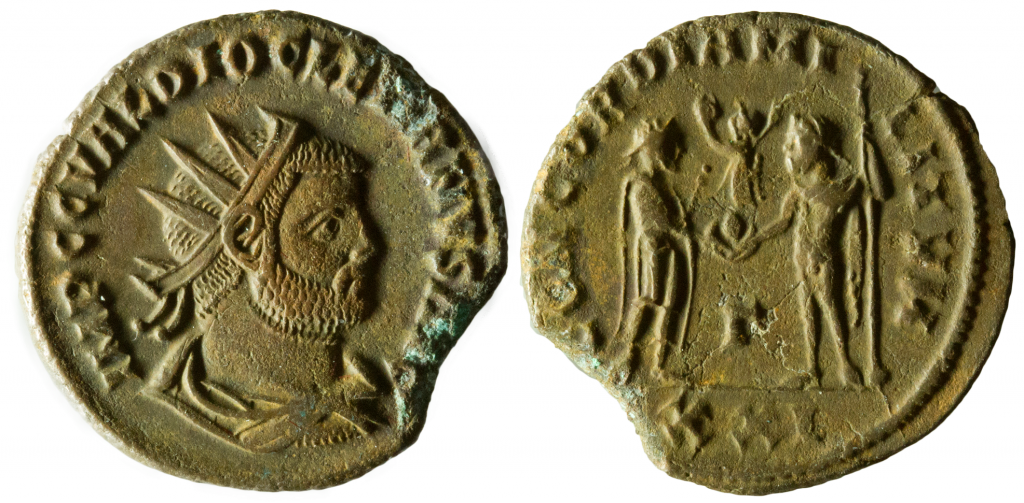March 31, 2015, by Will Leveritt
On this day in 302 Diocletian issued his edict on Manicheanism
Text by Larissa Ransom
Image by Kelly Grimshaw
On the 31st of March 302 Diocletian issued his edict on the Manicheans. But who were they?
Founded in the Sassanid Empire during the third century AD by the prophet Mani (216-c.276), the once widespread religion – adherents were to be found in both the Roman Empire and imperial China – was based on a dualistic theology in which the universe was divided between the divine plane of light and our own material plane, which was thought of as the realm of darkness. The Father of Greatness, a powerful but by no means omnipotent deity, rules the realm of light while our own material realm is controlled by a King of Darkness; the battle between the two sides takes place on both a cosmic and a personal level, within the soul of each individual. Manichaeism was heavily influenced by several other religions including Buddhism, Christianity and Zoroastrianism.

AE21 of Diocletian. Obverse has radiate and draped Diocletian right, IMP CC VAL DIOCLETIANVS AVG. Reverse has Jupiter at the right handing Victory perched on a globe to the emperor. CONCORDIA MILITVM, gamma in centre, XXI in ex. 21mm, 3.55g, 12 o’clock.
The religion proved popular, particularly in Egypt, where it was flourishing by the 290s and it was present in Rome, at the heart of the empire, by at least the 300s. It seems to have rivalled Christianity in terms of its size and popularity. Indeed, Saint Augustine of Hippo, the famous Christian theologian and bishop, and one of the Fathers of the Church, had been a follower of Mani’s religion before his conversion to Catholicism in 386.
In 302 the Roman emperor Diocletian received a report from Julianus, proconsul of Africa, regarding the Manicheans. The Emperor grew concerned:
As for these people (the Manichaeans), who set up new and unheard of sects contrary to the ancient rites, in order that in support of their perverse belief they might drive out those doctrines which had been granted to us in earlier times by divine influence, and concerning which Your Wisdom reported back to Our Serenity, we have heard that they, namely the Manichaeans, have arisen and advanced into this world very recently from among the Persians (a people antagonistic towards us ) just like new and unexpected prodigies, and where they are committing many crimes, for example troubling peaceful peoples and introducing the gravest damage to cities. We should be afraid that they might attempt, as is their wont, to corrupt men of more innocent natures, the modest and tranquil Roman race, and the whole of our empire with the deplorable customs and sinister laws of the Persians as if by the poisons from their own malevolence.
We command that their authors and heads be subjected to the harshest punishment; that is, to be consumed by the burning flames along with their condemnable writings. Furthermore we direct that their adherents receive capital punishment, so long as they are troublesome, and we decree that their wealth be appropriated to our treasury. If any officeholder or individual of any standing or persons of great repute convert to this hitherto unheard-of, foul, and entirely disgraceful sect, or to the religion of the Persians, you must make sure to transfer their property to our treasury and send them to the Phaenensian or Proconnesian mines.
Some have seen the edict against Manichaeism as a prologue to the Great Persecution, directed against the Christians, which began in the following year and would continue until the accession of Constantine.
*Trans. Mint Imperials
No comments yet, fill out a comment to be the first

Leave a Reply